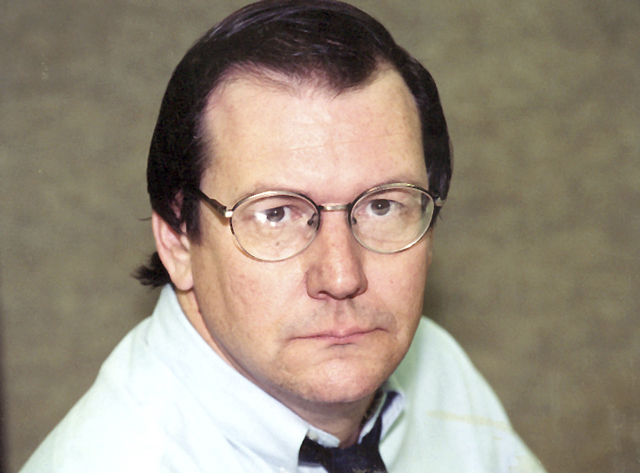Myers: Nevadans challenge authority
Each election I collect campaign materials from around Nevada and elsewhere. It helps to stay up on the techniques employed in them. I save television spots, leaflets, whatever. I send out requests to friends to save me their campaign mail pieces from the last couple of weeks of each campaign.
This has sometimes proven useful. In 1986 I was able to show that a Harry Reid flyer used in his U.S. Senate race had also been used in a San Francisco supervisor’s race, noting that some items are one-size-fits-all.
For 2016, I think I have found my favorite piece of campaign literature. It’s a four page, full color, magazine-size mailing with this headline on the front: “This Election, We May Not Agree on Much But ONE THING WE CAN AGREE ON … NO on 2 PROTECTING NEVADA’S CHILDREN.”
That tortuous headline is printed above a photo of 13 models dressed like the Village People—a woman with a stethoscope, a guy in a hard hat, a woman with a rolling pin (honest!), etc., all looking like one of those Chinese government posters in which all the people have blissful smiles on their kissers.
Inside there is a list of 40 organizations and people opposed to regulated legal marijuana. They are identified by their titles except for Elaine Wynn, who they apparently couldn’t figure out how to label (a problem in the north where she is unknown). The list starts with the governor and two U.S. senators and ends with the Eureka County sheriff. Across the bottom it says “All Major Nevada Newspapers Agree No on 2” and lists six, “major” apparently being defined by whether they opposed Question 2. On the back cover another fourteen organizations are listed, including such drug experts as the Nevada chapter of Associated General Contractors. Each page repeats “PROTECT NEVADA’S CHILDREN,” though the ballot measure made possession or consumption by anyone younger than 21 illegal. Interestingly, the conservative position that parents instead of government should take care of children is nowhere to be found.
In other words, while some materials handed out by the prohibitionists used an approach of protecting children or avoiding hazards like increased accidents or crime, this leaflet relied almost entirely on the notion of authority as a reason to vote against Q2. Big names with big money or big titles wanted Nevada to vote for prohibition.
There is a Latin term for this – argumentum ad verecundiam, or an appeal to authority. Experts on propaganda have said it works best when applied in a situation where there is reliable evidence supporting the proposition being sold. On the other hand, “when there is controversy, and authorities are divided, it is an error to base one’s view on the authority of just some of them,” according to fallacies scholar Hans Hansen. His description exactly fits marijuana prohibition, which has been supported from the very beginning by a pack of lies (marijuana was first outlawed after U.S. Rep. Carl Vinson told the House of Representatives that the American Medical Association supported prohibition, which was a lie).
The experts also say that when appealing to authority, it’s also a good idea to make sure that the authorities cited know what they’re talking about. The leaflet relies heavily on law enforcement figures, who are hardly drug experts. They may know something about enforcement, but they tend to cite the usual fakelore when they are asked about the drugs themselves. Moreover, enforcement itself endangers children, who are chronically being injured in busts. Finally, law enforcement has a conflict of interest – it gets a piece of the action from drug forfeiture proceeds. In the calendar year 2014, Nevada law enforcement agencies received more than $4 million in forfeiture proceeds.
This year, although (according to the headline on the leaflet) we were all agreed on opposing Q2, and although everyone in the state with a title opposed Q2, and although its opponents had an unlimited supply of (1) money and (2) lies, the public went its own way.
Sometimes everyday folks can beat money and power.
Dennis Myers is an award-winning journalist who has reported on Nevada’s capital, government and politics for several decades. He has also served as Nevada’s chief deputy secretary of state.

















